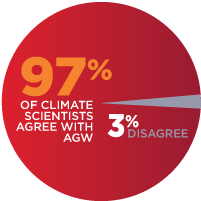Appeal to nature – the authenticity axiom
| Is natural always better than synthetic, or is that a red flag? |
How to recognise this tactic
Simple. You are expected to accept without question that anything ‘natural’ is good, and anything ‘artificial’, ‘synthetic’ or ‘man-made’ is bad.
It’s circumstantial
It’s nothing written in the sky
And we don’t even have to try
Crowded House, Australian-New Zealand band, “It’s Only Natural”, 1991
Why do people use this tactic?
People use this tactic because they want to avoid having to contend with real evidence. They either don’t have or don’t want to supply evidence for their claims and they don’t have any arguments to refute evidence that contradicts them. They try to imply that ‘natural’ is synonymous with all that is good, and thus it trumps all.
What’s wrong with this tactic
First of all, it’s not true that ‘natural’ things must always be good. Asbestos, botulism, cyanide, dengue fever, earthquakes, frostbite … are all natural but can be harmful. Naturalness is not an automatic guarantee of goodness or safety. There’s only one type of situation where this assumption is excusable. Humans have evolved with certain factors in their environment. Because we have become adapted to many of these factors, they are not likely to be harmful. So, as a general rule of thumb, these ‘natural’ factors could be regarded as beneficial. This is particularly true of foods, but it needs to be remembered that there are plenty of factors in our environment to which we have not adapted.
Second, how do you make a distinction between what’s natural and what’s not? Humans are part of nature, aren’t they? So this would mean that anything made by humans is natural, wouldn’t it?
Third, the mind-set that natural = good encourages the notion that you can’t have too much of a good thing. If a little bit of a ‘natural’ substances is good, then more must be better. So you can’t overdose on a natural substance. A quick reflection on the effects of opium or strychnine shows this is wrong. But it’s the rationale behind megavitamin therapy.
Finally, the appeal to nature poisons the well against new materials, discoveries and evidence-based decisions. There is in some people a predisposition to dismiss these developments because they are seen as ‘unnatural’, whereas judgments should be based on the evidence from real-world tests.
What to do when confronted by this tactic
It’s easy to debunk the appeal to nature – simply give some examples of natural substances or events that are not good. Follow this up by asking for evidence that whatever ‘natural’ item is being promoted is better than its ‘unnatural’ equivalent.
Variations and related tactics
The appeal to nature is also known as the naturalistic fallacy or the natural law fallacy. It’s a version of the ‘is-ought’ fallacy in which people wrongly claim that from a certain scientific fact (e.g. raw milk is natural), a value judgement automatically follows (raw milk is good for you). It’s also related to the philosophy of primitivism, which sees an earlier, simpler state of human cultural development as being more ‘natural’ than our current state.
Examples
- Climate deniers use the appeal to nature whenever they can. Among the variations are:
- Evolutionary psychologists are very aware of the dangers of falling for the naturalistic fallacy in justifying human behaviour. For example, people could attempt to justify rape on the basis that it increases the reproductive capacity of a the rapist, and thus gives them an evolutionary advantage – therefore rape is natural. Here‘s a discussion of the inappropriate use of this fallacy.
- Here’s an article by Skeptical Raptor on the use of the naturalistic fallacy by anti- vaccination campaigners. Their argument is that we need to be exposed to ‘natural’ infections so that our immune systems develop properly.
- Here’s a web page that uses all sorts of rationalisations to try to convince you that natural is better than synthetic, including claiming “a natural supplement is almost always safer to use because your body can more easily get rid of any excess.” This article is a good example of the use of jargon to give the appearance of scientific respectability.
The Crowded House lyrics are from “It’s Only Natural“
| This is one of ScienceOrNot’s Science red flags. See them all here. |









Trackbacks & Pingbacks